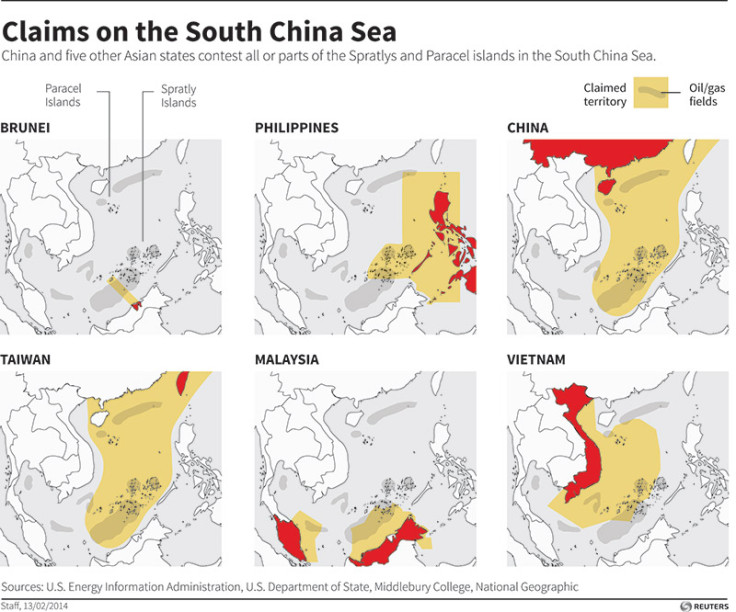South China Sea dispute: The Hague rules 'no legal basis' for China to claim rights to resources
The Tribunal also found that China had violated the Philippines' sovereign rights and caused damage to marine life.
In a landmark ruling on 12 July, The Hague tribunal has stated that there is "no legal basis" for China to claim historic rights to the South China Sea. The long-awaited decision comes after the Philippines took the cause to the tribunal, challenging's Beijing's right to exploit resources in the disputed waters.
Minutes before the outcome was announced, the Strait Times reported that China's state-run news agency had accused The Hague of issuing an "ill-founded award" and referred to them as a "law-abusing tribunal". Ahead of the ruling, China promised to boycott The Hague's decision on the matter, saying that it does not have jurisdiction over the dispute.
A statement from the Hague said: "Having found that certain areas are within the exclusive economic zone of the Philippines, the Tribunal found that China had violated the Philippines' sovereign rights... The Tribunal further held that Chinese law enforcement vessels had unlawfully created a serious risk of collision when they physically obstructed Philippine vessels."
The Tribunal commented on historical rights to the waters, the lawfulness of Chinese actions, the harm caused to marine life, and aggravation of the dispute. It noted that China's building of artificial islands had caused "severe harm to the coral reef environment", violating their obligation to preserve threatened and endangered species.
The case was decided by the arbitration tribunal under the United Nations Convention on the Law of the Sea (UNCLOS), which both China and the Philippines have signed. Ahead of the ruling, experts warned that China could react aggressively if the tribunal ruled against it.

Although the ruling is binding, the tribunal has no powers of enforcement. According to Chinese officials, at least 60 countries support their claims to the South China Sea, however, few have declared their support publicly.
China has increased military activity in the disputed seas, causing concerns for its smaller neighbours and becoming a source of confrontation with the United States. China claims most of the energy-rich waters, which also host roughly $5tn in ship-borne trade annually. Brunei, Malaysia, the Philippines, Taiwan and Vietnam have also claimed parts of the South China Sea.
Ahead of The Hague ruling, a spokesperson for China's Defence Ministry said: "No matter what kind of ruling is to be made, Chinese armed forces will firmly safeguard national sovereignty, security and maritime interests and rights, firmly uphold regional peace and stability, and deal with all kinds of threats and challenges."
© Copyright IBTimes 2025. All rights reserved.






















